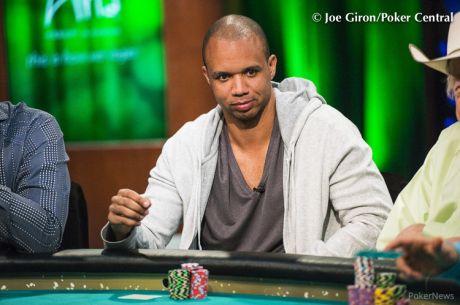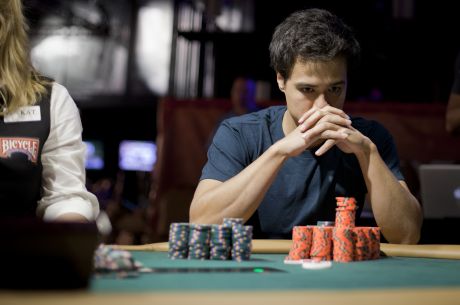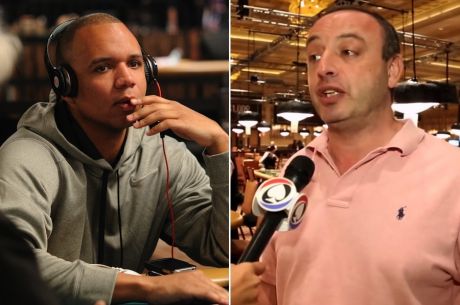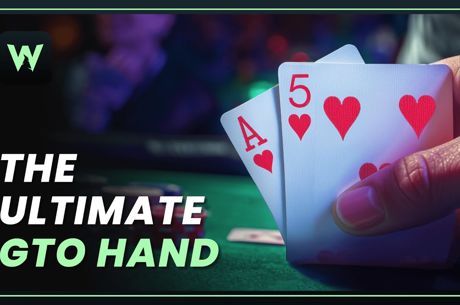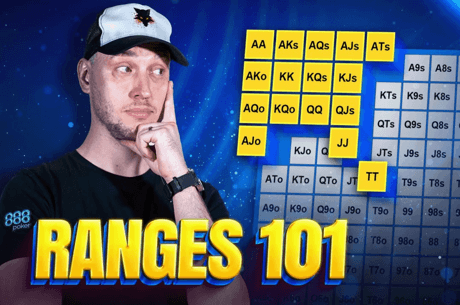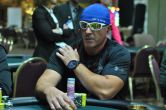Way Ahead/Way Behind: Take it Slow Against a Preflop Aggressor

Covering live poker tournaments for a living affords me the opportunity to see countless thousands of hands played out, many of which offer interesting and potentially valuable insights into how players — both amateurs and professionals — play the game. In this ongoing series, I’ll highlight hands I’ve seen at the tournaments I’ve covered and see if we can glean anything useful from them.
The Scene
For this week’s hand, we take a little bit of a departure from the normal tournament coverage and venture into the world of high-stakes cash games.
During the tail end of the 2015 World Series of Poker, the ARIA Resort & Casino held one of the most buzzed-about events in poker’s recent history — the Super High Roller Series.
A series of cash games kicked off the event, and Day 3 of those high-stakes affairs featured a $300/$600 no-limit hold’em game with a $1,200 mandatory straddle. Many pots were restraddled to $2,400, then $4,800, and sometimes even $9,600, meaning the eight-player table had just two players without a blind bet in front of them at times.
As you might imagine, that created a lot of crazy action, with Rick Salomon driving much it with very loose-aggressive play, the backwards “R” on his cap seeming to suit his style.
The Action
With the $2,400 straddle on, action folded to the cutoff where Al DeCarolis raised to $8,500. Salomon three-bet to $25,000 on the button, and the blinds and straddles got out of the way. DeCarolis opted to continue with a call, and the two players saw the flop come 8♥A♠8♦.
DeCarolis checked to the aggressor, and Salomon bet $25,000 again. DeCarolis announced a raise and came out with $75,000. After double-checking his holding, Salomon called, bringing the pot to $204,500.
The turn was the 4♣, and DeCarolis slowed down with a check, then called quickly after Salomon fired $100,000. The river then brought the 5♥, and DeCarolis checked again. Salomon put his opponent all in for $209,100 effective, and DeCarolis called it off.
Salomon showed down 8♣3♣ for trips, and DeCarolis could only sigh, mucking A♣K♦ face-up. That sent a pot of $822,700 Salomon’s way.
Concept and Analysis
It’s important to note for this hand that Salomon had been playing extremely aggressively throughout the session. Seemingly any time action folded to him preflop, he came in raising, and was clearly willing to play a wide range of hands and see flops.
Salomon obviously felt confident that with stacks so deep — everyone came in for a minimum of $250,000 — he could maneuver postflop even if opponents played back at him with three-bets. That means any of his opponents had to assign him a very wide range preflop.
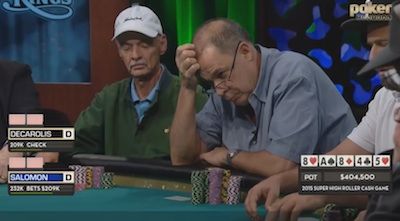
In the highlighted hand, Salomon makes a very light three-bet to $25,000 with a weak suited hand, isolating his out-of-position opponent. DeCarolis opts to just call with ace-king, a curious choice considering he is miles ahead of Salomon’s range. Just calling ace-king in this spot can be fine, but where DeCarolis slipped up was postflop.
When the flop comes 8♥A♠8♦, DeCarolis is in a classic “way ahead/way behind” (WAWB) situation. Either Salomon has him crushed with three eights or aces full, or DeCarolis is up against an opponent with total air and very little chance of improving to a winner. Usually, the best course of action in WAWB spots without the betting lead is to play a little slower, leaving your opponent’s whole range in play.
By check-raising the flop instead, DeCarolis boxes himself into a corner as he probably has chased away Salomon’s pure bluffs, leaving only weaker aces and hands that beat DeCarolis. The check-raise can work to his advantage against the weaker aces if he thinks Salomon will call at least one more big bet, but DeCarolis makes matters worse by check-calling off his stack with a bluff catcher in a spot where he already chased away a lot of bluffs.
Bloating the pot in a WAWB situation can be a dangerous proposition, as you may be isolating yourself against the hands that you’re way behind.
Want to stay atop all the latest in the poker world? If so, make sure to get PokerNews updates on your social media outlets. Follow us on Twitter and find us on both Facebook and Google+!

